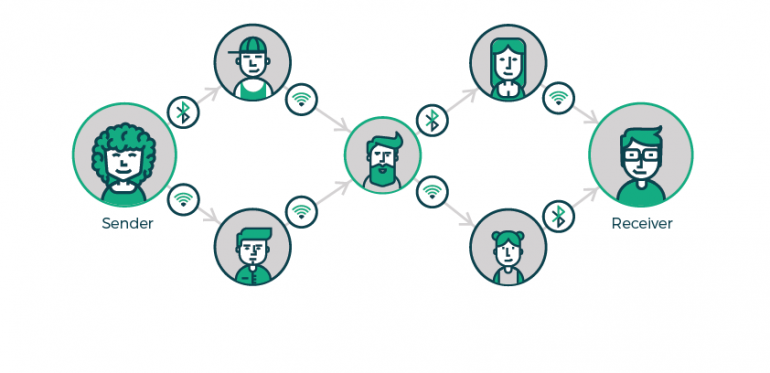Over the past few weeks, several blockchain companies have made announcements launching new features and expanding their technologies. Here’s the latest on these company updates.
Bluezelle raises $24.4 million CAD in ICO
Bluzelle, a decentralized database provider, has closed $24.4 million CAD in an ICO, which it will use towards developing its decentralized database technology.
Currently based in Singapore, Bluzelle was founded in Vancouver. The company says that it’s filling a “major piece” in the decentralized internet by providing data storage and management; currently, Filecoin and Storj provide file storage systems, but dApp developers also need data storage and management systems capable of fast and simple data queries to build the full range of services on the decentralized internet.
“Selling out the crowdsale is a huge milestone in the growth of our company and our journey to deliver a product that will be a key component of the new, better Internet,” said Bluzelle CEO Pavel Bains. “We have been into this technology for years and the CEOs and CTOs we work with are just as enthusiastic as us about the product, technology and the future. With this funding, we will now be able to bring our decentralized database to everyone.”
On day one, 360 buyers took part, which was a 85 percent turnout for group one. On day two, 6,698 buyers took part, which was a 95 percent turnout for Group two. By day three, there were just under 2 million tokens left of the 165 million made available for sale, and both previous groups were able to take part on a first-come-first-served basis. This final round sold out in under five seconds.
In total, 500 million tokens had been generated, so the 165 million that were sold represented 33 percent of the total. Investors included Kenetic Capital, Hashed, Kryptonite 1 and 8 Decimal Capital.
In August 2017, Bluzelle raised $1.5 million in Series A funding round that was backed by venture capital firms Global Brain, LUN Partners Capital and True Global Ventures.
RightMesh launching offline emergency communications app
Vancouver-based RightMesh, which is using mesh networking and blockchain technology to enable offline connectivity, announced plans to launch Flare in Q2 of this year.
The company began working on the platform in the wake of a tsunami alert in BC. Users can download the Flare app as a backup for communication in case of disruption to phone and internet service. Key features under development include P2P, text, photo, audio, and location messages, blasting messages for help sent to anyone available in the mesh, the ability to post and respond to requests for items such as water, pet food, or a generator, and the ability to share location on downloaded maps so users can geolocate each other.
“With two offices and about 100 developers in Bangladesh, we have experienced firsthand the pain of subpar connectivity,” said CEO and co-founder of John Lyotier. “Our own developers provided the catalyst for RightMesh when they developed a rudimentary offline communications app to use as an in-office work around. With more than half the world lacking connectivity and all the economic and social benefits that come with it, we knew then that developing what has evolved into RightMesh was the ‘right’ thing to do.”
An additional concept RightMesh has been developing is a drone that can function as a node in the mesh to enhance Flare’s utility to help rescue efforts. With the autonomous connectivity of the mesh network, the drone could fly over affected areas and instantly detect autonomous blast messages or ‘Flares’ asking for help from within 100 metres or anyone that is mesh connected. The drone could then return to a base or internet-connected zone to relay the information to rescue workers.
Mesh networks allow smartphones and IoT devices to piggyback off each other as nodes in a network, rather than forcing all devices to rely on one central tower. The company recently raised $22 million CAD in a private token allocation round.


